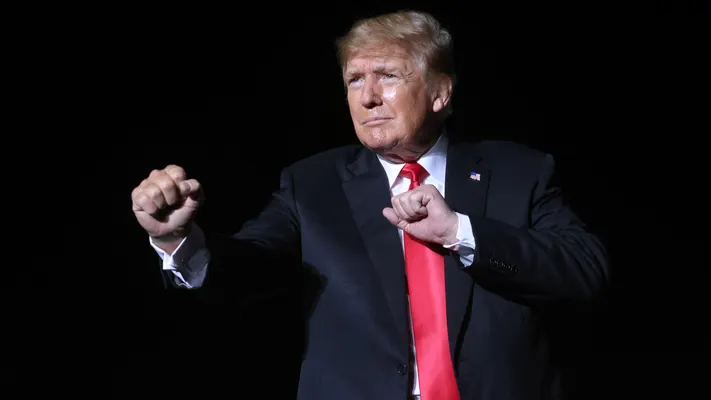
Donald Trump: An insight of the 45th President of the United States
Donald Trump, a figure that elicits strong reactions, was the 45th President of the United States, serving from January 2017 to January 2021. Before his venture into politics, Trump was best known as a real estate mogul and a television personality, particularly for his role on the reality show “The Apprentice.” This article explores Trump’s journey from businessman to president, his policies during his tenure, and his impact on American politics.
Early Life and Business Career
Born on June 14, 1946, in Queens, New York, Donald John Trump was the fourth of five children of Frederick C. and Mary MacLeod Trump. He attended the New York Military Academy and later graduated from the Wharton School of the University of Pennsylvania in 1968 with a degree in economics.
Trump took control of his family’s real estate business in 1971, renaming it The Trump Organization. He expanded the company’s operations from Queens and Brooklyn into Manhattan, developing and building office towers, hotels, casinos, and golf courses. Trump also famously expanded into numerous side ventures, from the Miss Universe pageant to his reality television career, which increased his visibility and controversial celebrity status.
Political Career
Donald Trump’s political life began when he announced his candidacy for the U.S. presidency on the Republican ticket in June 2015. With no prior political experience, his campaign was initially considered a long shot. However, Trump’s direct style and promise to “Make America Great Again” resonated with many American voters. He secured the Republican nomination and went on to win the presidency against Democratic candidate Hillary Clinton in a surprising and divisive election in November 2016.
Presidency and Policies
During his presidency, Donald Trump focused on several key areas:
– Economic Policies: Trump implemented significant tax cuts with the 2017 Tax Cuts and Jobs Act, aimed at stimulating economic growth. He also focused on trade policy, renegotiating the North American Free Trade Agreement (now the USMCA) and engaging in a high-stakes trade war with China.
– Immigration: One of Trump’s most controversial policies was his stance on immigration, including attempts to build a wall on the southern border with Mexico and implementing strict travel bans from several predominantly Muslim countries.
– Foreign Policy: Trump advocated for an “America First” foreign policy, withdrawing the U.S. from several international agreements, including the Paris Climate Agreement and the Iran nuclear deal.
Controversies and Impeachment
Trump’s presidency was marked by numerous controversies, including an investigation by Special Counsel Robert Mueller into Russian interference in the 2016 presidential election. Trump was impeached by the House of Representatives in December 2019 on charges of abuse of power and obstruction of Congress, related to his dealings with Ukraine, but was acquitted by the Senate in February 2020.
Post-Presidency
After losing the 2020 presidential election to Joe Biden, Trump continued to assert that the election was stolen, despite these claims being widely discredited by election officials and the courts. His rhetoric culminated in the January 6, 2021, attack on the United States Capitol by his supporters.
Legacy
Donald Trump’s presidential legacy is complex and deeply divisive. He reshaped the Republican Party, influenced the judiciary by appointing three Supreme Court justices, and altered the course of U.S. foreign and domestic policy. His impact on the American political landscape and his role in exacerbating political polarization will be subjects of analysis and debate for years to come.
Conclusion
Donald Trump remains a pivotal, if polarizing, figure in American history. His transition from business to politics has left a lasting imprint on the fabric of U.S. governance and political discourse, reflecting deep national divisions and the enduring appeal of populist movements in the 21st century.

